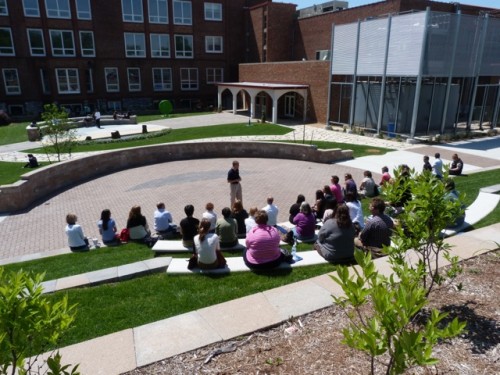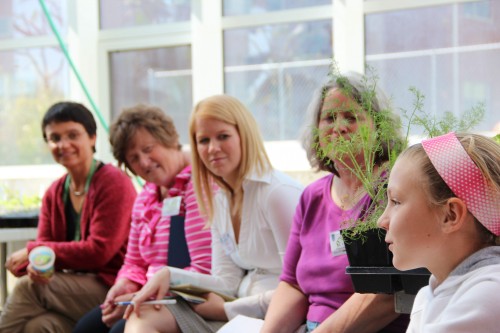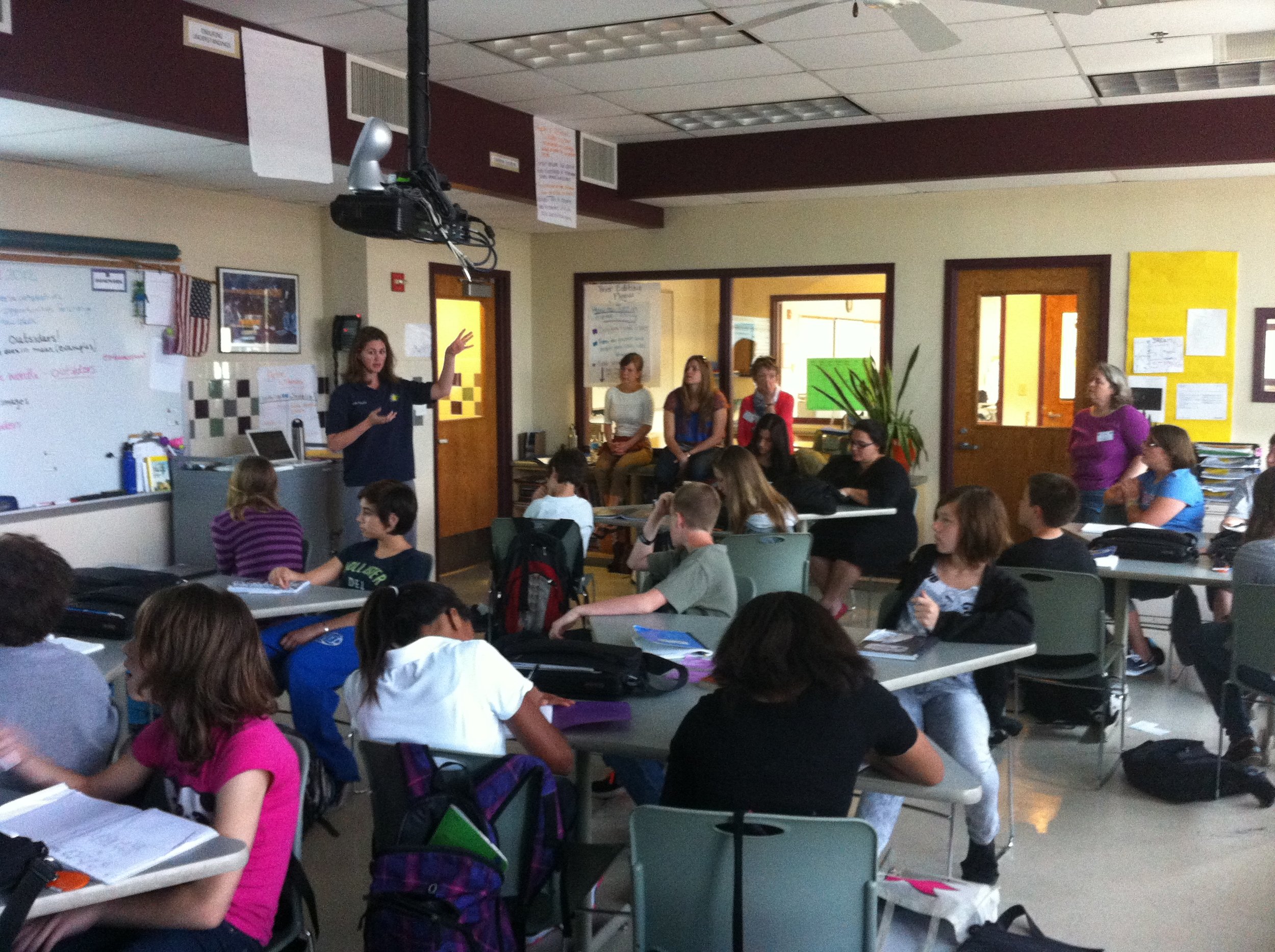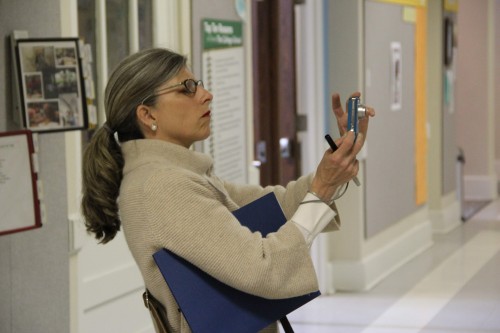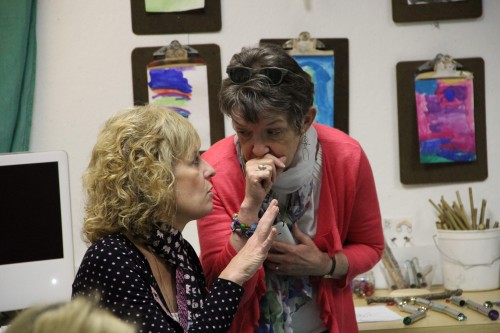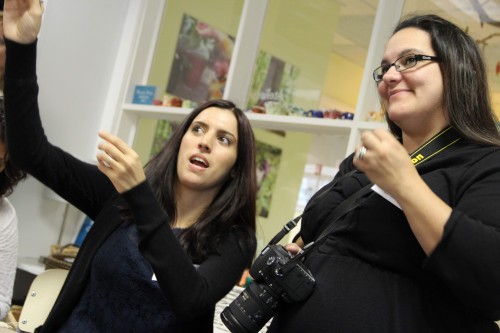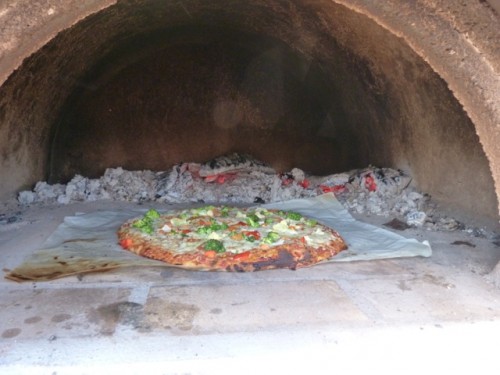On April 19 and 20 0ver 60 educators gathered in St. Louis for our second annual sustainability education seminar. This year we set the challenge to "bust several the predominant myths" of education, mental models of reality that are not actually true, and preconceptions that get in the way of meeting the needs of our students and communities.
We explored five myths:
- Independent and public schools do not collaborate
- Students don't do real work in school
- Students are not yet citizens
- Teachers deliver curricula, students receive it
- Tests are the best measure of achievement
From the very outset we experienced that not only can independent and public schools collaborate, but that when they do, their different perspectives and cultures are fertile ingredients for new ideas, like rich organic matter for new seeds. The faculties at The College School and Maplewood Richmond Heights Middle School worked together for four months, sharing their projects. The extent of their discoveries became clear during the presentation workshops, each of the six representing a different area of cross-fertilization:
- Making a Difference through Experiential Learning
- Systems Thinking: A Fresh Lens for All Learning
- The Joy of Play-Based Learning
- Water, Water Everywhere
- Dirty Hands, Connected Hearts: Native Plants and Gardening
- Urban Sustainability: Chickenology and Bees
One participant observed: These were great breakout sessions; applicable to all types of educators.
The classroom observations in both schools revealed students doing REAL work in school; taking part in projects that benefited their immediate communities; and collaborating with their teachers, working together to create effective results. Here is a list of the different classroom observations:
- Education for sustainability through poetry
- Groovin' in the greenhouse
- Exploring rich materials and ideas in the Atelier
- Critical and mathematical thinking with trail mix
- Expedition reflections: How do unique perspectives influence how people see the world?
- Perspectives on Dred Scott - as shared conversation
- Embedding math into problem-based learning: the MRH Bee Business
- Digital storytelling: defining moments
As one participant wrote: the free time to observe both schools was wonderful. I got many, many ideas and lots of inspiration!
Another wrote: Meeting and listening to the 4th graders articulate their connections between their experiences and their learning in the greenhouse was wonderful.
And another: [One experience especially meaningful to me] is the realization that children are citizens NOW, and that they can play an ACTIVE role in society; and that their actions can change the world!
And one more: Observing a teacher and students and then [after the class] having time to talk with her and the other teachers who were attending with me was practical and meaningful. The joy in the environment and in the teachers and children was overwhelmingly amazing!!
Throughout the seminar there was much evidence of substantive assessment of student achievement: exemplary student work on the walls of the classrooms and in the hallways, electronic portfolios, and student reflections on progress over time.
One participant wrote: Experiencing the high level of respect for students and their work was amazing.
The generosity of both schools was underscored by their liberal photography policy...cameras were VERY busy.
There was lots of time for interchange among the educators. As one participant reflected:
It was especially meaningful to me to gather the pearls of wisdom shared by presenters and others attending and share them with my colleagues. At school I never get to talk with my colleagues and here we had time to have meaningful conversations.
Oh, and then there was the FOOD!!!!
The food was fantastic. I loved the food.
The food was fresh and local...served on REAL dishes!
In the end, the calm community and positive, relaxed atmosphere (created by Bob, Kevin, Louise and Ashley) gave us a sense of passion and enthusiasm.

